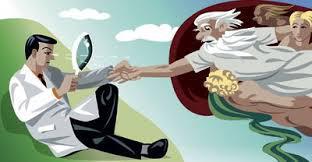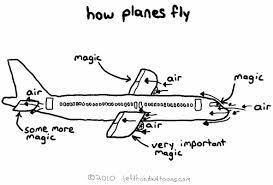 This book by Richard Tarnas is a history of Western thought. Now, yes, Eastern thought is also worthy of respect. But the Western intellectual tradition is the 800 pound gorilla, the elephant in the room, the hippo in the bathtub.
This book by Richard Tarnas is a history of Western thought. Now, yes, Eastern thought is also worthy of respect. But the Western intellectual tradition is the 800 pound gorilla, the elephant in the room, the hippo in the bathtub.
I have written about our falling down on humanities education. Tarnas presents his history as a story – the tale of how we got from Point A (the ancient Greeks) to Point B (where we are today), with hints of a further Point C. It’s actually a thrilling story – but more, it’s vital to understanding our world and its challenges.

Play-doh’s Forms
Tarnas says he aims to describe systems of thought “on their own terms,” without “condescension,” so that we can better understand our journey. He begins with the Greeks, notably Plato, whose theory of “forms” was a first stab at understanding the nature of reality, starting a conversation that’s never stopped.
Then comes Christianity. True to his word, Tarnas gives us Christian thought and its development straight, “on its own terms,” nonjudgmentally.

But then the story gets good. Revolution bursts out all over. You’ve got your Renaissance. Then your Reformation. And then your scientific revolution, and your Enlightenment. It all makes the church’s head spin.
When it comes to discussing the modern intellectual paradigm – the Enlightenment of science and rationality – Tarnas lets slip his straight-faced mask of nonjudgmentalism.

Meantime, though, it wasn’t just religion having trouble with science; philosophy did too. It’s the eternal problem of epistemology: what is true knowledge, and how can a human mind possess it? “The Crisis of Modern Science,” Tarnas calls this chapter. In particular he invokes philosopher Thomas Kuhn (1922-96), and the notion that what we’ve got is not so much information as interpretation; we cannot truly know anything. And then we find sentences like this: “The aggressive exploitation of the natural environment, the proliferation of nuclear weaponry, the threat of global catastrophe – all pointed to an indictment of science, of human reason itself, now seemingly in thrall to man’s own self-destructive irrationality.”
Please. This is indeed the pessimistic post-modern mindset. But just as Tarnas was over-the-top in declaring that science had killed faith, he is even further off the mark in declaring science mortally wounded.

As for “man’s own self-destructive irrationality,” etc., it’s undeniable that we are at least imperfectly rational and sometimes cause great harm to ourselves and others. But is that the whole picture? It’s not even most of it. The bigger picture – vastly bigger – is that, from our emergence as a species, and especially from the start of civilization, and especially in modern scientific times, we humans have increasingly utilized rationality to create societal structures and to gain knowledge to advance technologically, to give ever greater numbers ever better quality of life.

Now what about that Point C I mentioned? In the spirit of Tarnas I’ll try to present this “on its own terms.” He suggests a resolution to “the profound dualism of the modern mind” – man vs. nature, mind vs. matter, self vs. other, etc. One’s birth is an expression of a larger underlying archetypal process of moving from one paradigm to another. The newborn is expelled into a world of confusion, needing a “redemptive reunification of the individuated self with the universal matrix.” It’s not a matter of our seeking to extract knowledge from the world; rather, “the world’s truth achieves its existence when it comes to birth in the human mind.” There is a “universal unconscious” that “reflects the human mind’s radical kinship with the cosmos.”

Well. As Francis Urquhart, in the original House of Cards would say, “You might think that; but I could not possibly comment.”
* No doubt some lefty cynic will deride me as a blind fool. Much though such folks love to believe everything is getting worse, it just ain’t so.
